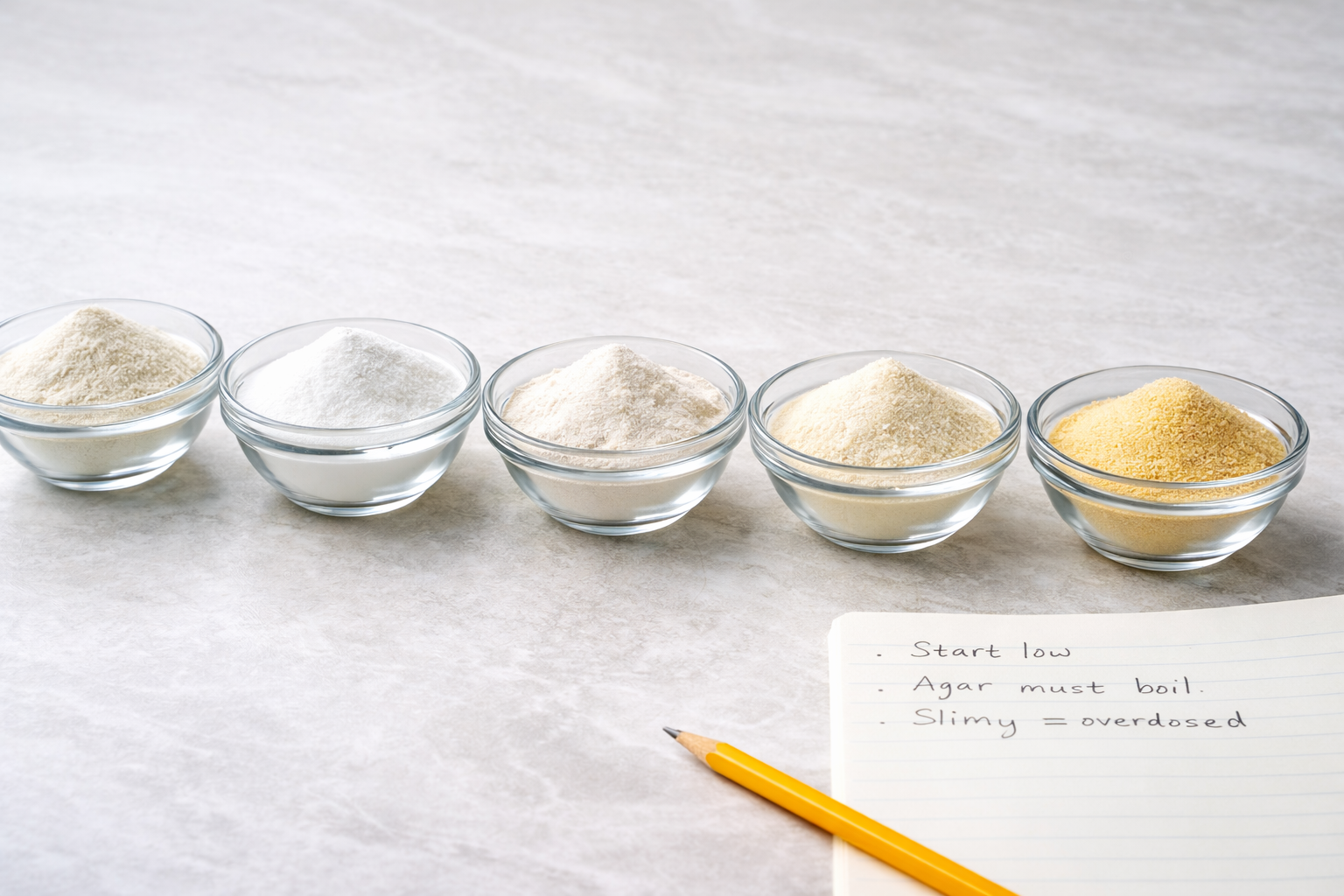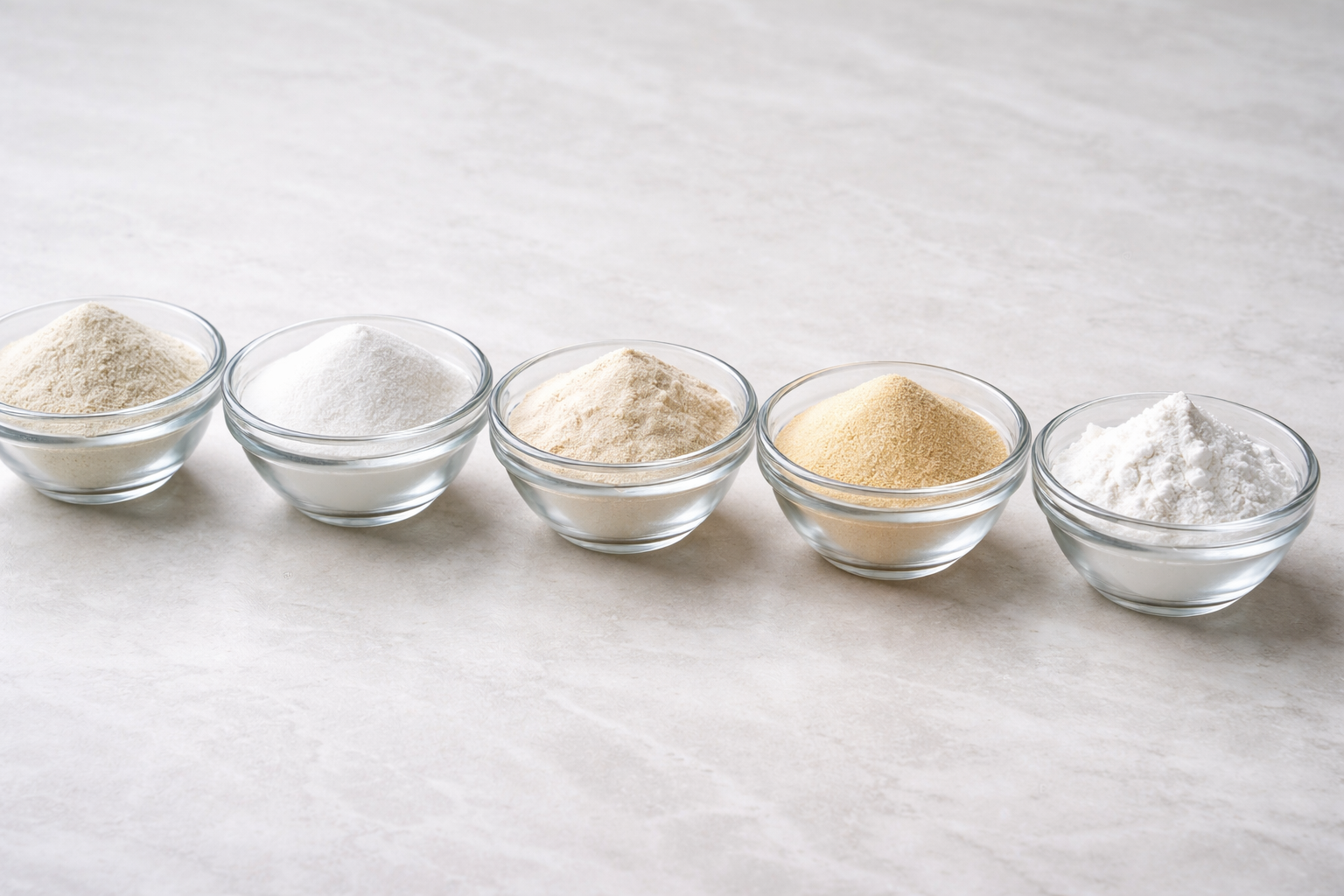
Sodium Alginate for Pharmaceutical Applications
SUBSCRIBE TO OUR BLOG
Promotions, new products, and recipes.
Sodium Alginate is a versatile compound used in various pharmaceutical applications. It is used in drug delivery systems and wound dressings.
Its unique properties make it an ideal ingredient for drug formulations. It provides benefits like gastric protection and controlled release.

The use of pharmaceutical sodium alginate has gained significant attention. It is known for improving drug efficacy and patient outcomes.
Key Takeaways
- Versatile compound used in various pharmaceutical applications.
- Enhances drug formulations with benefits like gastric protection.
- Ideal for controlled release drug delivery systems.
- Used in wound dressings for improved patient outcomes.
- Gained significant attention for improving drug efficacy.
What is Pharmaceutical Sodium Alginate?
Sodium alginate is a natural polymer that's getting a lot of attention in medicine. It comes from brown seaweed and is safe for use in the body.
Chemical Structure and Properties
The chemical makeup of sodium alginate lets it form gels and matrices. This makes it useful in many medicines. Its unique properties include:
- Biocompatibility
- Non-toxicity
- Gelling properties
- Mucoadhesive properties
Because of these traits, sodium alginate is great for controlled drug release. The alginate in pharmaceutical industry helps protect and release drugs slowly.
Sources and Production Process
Sodium alginate mainly comes from brown seaweed. The making of it involves a few important steps:
- Extraction of alginate from seaweed
- Purification of the extracted alginate
- Processing into a usable form for pharmaceutical applications
Knowing how sodium alginate is made is key to its quality in medicines. The benefits of sodium alginate in medicine are many. It helps with drug delivery and protects the stomach.
Key Applications in the Pharmaceutical Industry
Pharmaceutical grade sodium alginate is used in many ways in the pharmaceutical world. Its special properties make it perfect for different medical and drug uses.
Drug Delivery Systems
Controlled Release Formulations are a big use of sodium alginate in drug delivery. It can turn into a gel with calcium ions. This helps drugs work better and have fewer side effects.
Sodium alginate is safe and non-toxic. This makes it great for many drug delivery methods, like pills and creams.
| Application | Description | Benefits |
|---|---|---|
| Oral Drug Delivery | Sodium alginate is used to formulate oral drugs that require controlled release. | Improved drug efficacy, reduced side effects. |
| Topical Drug Delivery | Used in topical formulations for wound care and skin conditions. | Enhanced healing, reduced risk of infection. |
Wound Dressings and Tissue Engineering
Sodium alginate can turn into a gel. This makes it perfect for wound dressings. It absorbs fluids, helping wounds heal faster.
Gastric Protection and Controlled Release Formulations
In gastric protection, sodium alginate creates a protective gel layer. This shields the stomach from harm. It's used in antacids and stomach protectors.
- Protects the gastric mucosa
- Enhances the efficacy of antacids
- Supports controlled release formulations
The many uses of pharmaceutical grade sodium alginate are a big plus. It helps create new and better drug forms, improving health outcomes.
Benefits and Advantages of Pharmaceutical Grade Sodium Alginate
Sodium Alginate is key in making medicines because it's safe and works well with the body. It has special qualities that make it perfect for many uses in the medicine world.
Biocompatibility and Safety Profile
One big plus of Pharmaceutical Grade Sodium Alginate is that it's biocompatible. It's safe and doesn't cause allergic reactions, making it great for many medicines. It's been used for a long time in food and medicine.
Its safety comes from being natural and easily broken down by the body. This is very important for things like wound dressings, where it touches body tissues.
Versatility and Formulation Flexibility
Sodium Alginate can be made into many things, like gels and films. Its formulation flexibility lets it be used in lots of medicines, from drug delivery systems to wound care products. This makes it very useful for making medicines.
It can also be mixed with other materials, like chitosan and hyaluronic acid, to make even better products.
Quality Standards and Reliable Suppliers
To make sure Sodium Alginate is good for medicines, it's important to get it from reliable suppliers. These suppliers follow strict rules to make sure the Sodium Alginate is pure and safe. It must meet rules about purity, how thick it is, and if it has germs.
| Quality Parameter | Specification | Importance |
|---|---|---|
| Purity | >99% | Ensures the material is free from contaminants |
| Viscosity | Specified range | Affects the material's performance in formulations |
| Microbial Contamination | Meets regulatory limits | Ensures the material is safe for use in pharmaceutical products |
Getting Sodium Alginate from trusted suppliers helps make sure medicines are of high quality. This is good for everyone who uses them.
Conclusion
The pharmaceutical industry depends a lot on Sodium Alginate. It's because of its special properties and many uses. Knowing how Sodium Alginate is made helps us see its value in medicines.
Making Sodium Alginate is a detailed process. It needs careful steps to meet high standards. As the industry grows, so will the need for top-quality Sodium Alginate. This is because it's great for delivering drugs, healing wounds, and more.
Sodium Alginate is safe, works well with other ingredients, and is flexible. It's set to become even more important in the world of medicines.
FAQ
What is pharmaceutical sodium alginate?
Pharmaceutical sodium alginate comes from brown seaweed. It's safe and works well in medicine. It can make gels and matrices, which are useful in many ways.
What are the uses of sodium alginate in the pharmaceutical industry?
It's used in drug delivery, wound care, and tissue engineering. It also helps protect the stomach and controls how drugs are released. Its many uses make it very valuable in medicine.
How is pharmaceutical grade sodium alginate produced?
First, alginate is taken from brown seaweed. Then, it's cleaned and made ready for use. It's important to get it from trusted sources to ensure quality.
What are the benefits of using sodium alginate in pharmaceutical applications?
It's safe and works well in many ways. It helps drugs last longer and protects them. Its many uses make it a key part of medicine.
What are the properties of sodium alginate that make it suitable for pharmaceutical applications?
Its special structure lets it create gels and matrices. This makes it great for wound care, tissue engineering, and controlled drug release. It's safe and effective.
How does sodium alginate contribute to drug delivery systems?
It helps drugs release slowly, making them more effective and safe. Its ability to form gels and matrices is key to this process. It's a big help in drug delivery.

|
About the Author Ed is the founder of Cape Crystal Brands, editor of the Beginner’s Guide to Hydrocolloids, and a passionate advocate for making food science accessible to all. Discover premium ingredients, expert resources, and free formulation tools at capecrystalbrands.com/tools. — Ed |
Enjoyed this post? Subscribe to The Crystal Scoop
Food-science tips, ingredient know-how, and recipes. No spam—unsubscribe anytime.
- Choosing a selection results in a full page refresh.



